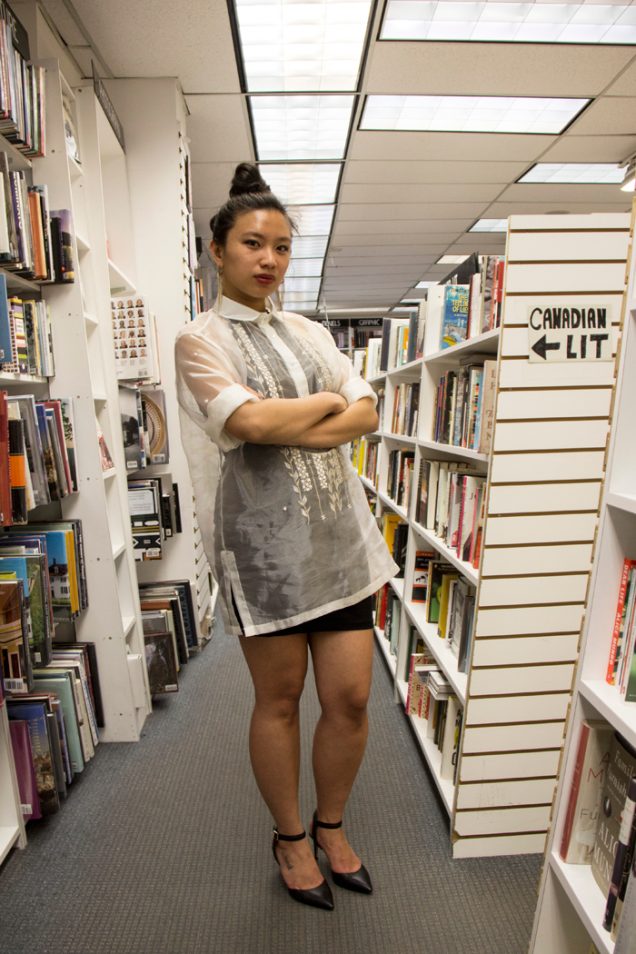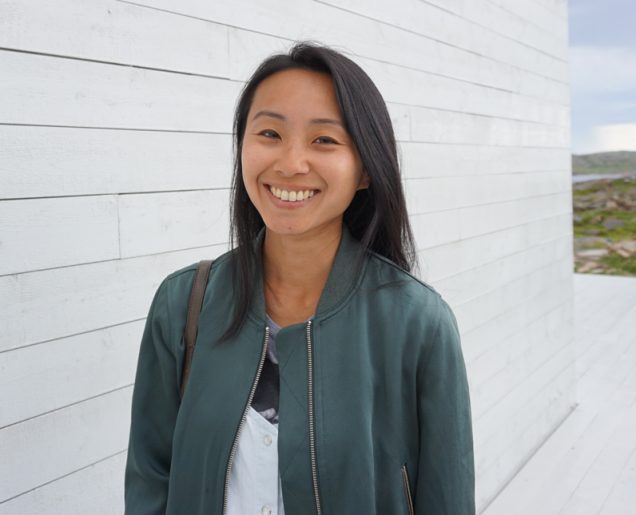A year later, anti-Asian racism still on the rise
A year later, anti-Asian racism still on the rise

Living Hyphen Founder Justine Abigail Yu (Photo: Jessie Abrazado)
By Irish Mae Silvestre
The Philippine Reporter
On March 16, a 21-year-old white male walked into three massage parlours in Atlanta and shot and killed eight people. Six of them were Asians.
On March 17, a 39-year-old white male physically assaulted an 83-year-old man and, later, a 75-year-old woman in San Francisco. Both victims are Asian.
While both attacks took place in the US, the escalating anti-Asian sentiments come as no surprise to the Asian community in Canada – especially for the founder of magazine Living Hyphen, Justine Abigail Yu. In July 2020, Yu was reading in a Toronto park when a white woman yelled at her to “go back to China.”
The incident was caught on video and drew headlines. But eight months later, Yu said that the incident is still an ongoing investigation.
“It’s just proof of how the system is built to delay justice and uphold white supremacy,” she said.
The problematic way in which law enforcement tackles these incidents was also evident in the way that the police hesitated to label the Georgia shootings as a hate crime.

Kennes Lin, co-chair of the Chinese Canadian National Council Toronto Chapter. (Image supplied)
Kennes Lin, co-chair of the Chinese Canadian National Council Toronto Chapter says that doing so humanizes the perpetrator and makes the Asian community feel like they’re “less than.”
“This hesitancy has allowed for the public to continue to doubt and question if the gunman was ‘racially motivated,’” she said.
Increasing Hate Crimes
A year-end report by the Vancouver Police Board published in February this year stated that “anti-Asian hate crime incidents rose by 717% from 2019 to 2020.”
It’s in-keeping with reports received by Fight COVID Racism and Project 1907. Both websites encourage people to share their experiences and also track racist incidents across Canada.
“Jointly, they have received [reports of] over 1,000 anti-Asian racist attacks,” said Lin. “The majority of the reported attacks are on women (sixty percent) and the most ‘vulnerable’ to attacks are the young and the old.”
She also said that pandemic fatigue has also contributed to the increase in reports.
Lin shares some examples of reported attacks:
* “A white man yelled at me to take my mask off, that I looked ridiculous (for wearing it, I assume) and called me a Chinese bitch.”
* “When the child was riding a bicycle, he chased and abused the child. The child was torn off the bicycle while preparing to record the video and [he] hit the child on the ground.”
* “White man forbade me to get on the train, he told me to stand there and blocked my entrance to get on train. I walked around him, and he called me a “f*cking b*tch!” I was feeling afraid to take the train for a few days.”
When such attacks occur, Lin advises people to make their safety a priority.
“Be mindful of your safety in the moment of an attack while in a public space,” she said. “If you feel comfortable, confront the perpetrator. If you are a witness and comfortable, record the incident on your phone – this is legal evidence.”
Next, Lin stated that people should share their experiences online and report it on websites like CovidRacism.ca.
“Share your experiences of violence on social media and with others as we need to take up space [and prove] that anti-Asian racism does exist,” she said.
Speaking Up
Yu stated that COVID-related racism can be attributed to the “already existing prejudice that western society holds against Asians.”
“The violence has been encouraged all throughout the last year by Trump and his incessant references to the pandemic as the ‘Kung Flu’ or the ‘China virus,’” she said.
Last year, the federal government announced that it will invest $4.6 million to establish an Anti-Racism Secretariat within the Department of Canadian Heritage. The department has not immediately responded to emails from The Philippine Reporter.
Despite this, Yu said that these efforts are not enough.
“Aside from condemning the violence during a press conference, not much action has been taken to protect our Asian community,” she said. “We are incorrectly conditioned to accept and swallow what this racist government and culture give us and simply to be grateful to be here.”
In fact, Yu pointed that the federal strategy titled “Building a Foundation for Change” does not even mention anti-Asian racism. “We continue to be invisible in the eyes of this colonial government.”
And as for what the Asian community can do, Lin encourages more people to speak up.
“Anti-Asian racism, and all forms of discrimination, is unacceptable,” she said. “While we may be used to keeping our heads down and being quiet, this is the time to speak out against violence and targeting.”
—————————–
 Irish Mae Silvestre is a Toronto-based journalist who has worked at magazines in Dubai, Chicago and New York. She covers news, lifestyle and entertainment. She studied journalism at Rutgers University, New Jersey and earned her master’s degree in journalism at DePaul University, Chicago. You can follow her on Twitter @irishmae101
Irish Mae Silvestre is a Toronto-based journalist who has worked at magazines in Dubai, Chicago and New York. She covers news, lifestyle and entertainment. She studied journalism at Rutgers University, New Jersey and earned her master’s degree in journalism at DePaul University, Chicago. You can follow her on Twitter @irishmae101
Comments (0)